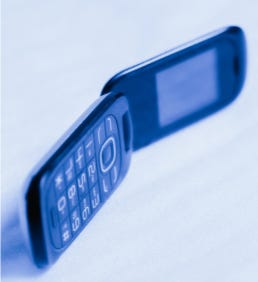It's in Your Genes
Your dna can beat you at chess
Hi Friends,
Last week, it was announced that a team of scientist created a computer out of DNA (yes, that DNA—Deoxyribonucleic acid). And, this computer can play chess and solve Sudoku puzzles. What? yeah, really.
These tinkering folks coerced some strands of DNA into solving problems. We've already used DNA to store data. That part is probably simple, since that's what DNA does in our bodies. But, to make the stuff perform calculations is something else entirely. It's like getting your filing cabinet to make coffee.
Mmmm—coffee.
The work made me think of other types of computers. Throughout our history, humans have created all kinds of computational devices. I think in our world of cell phones, video games, and deep fakes, it's easy to forget (or even realize) that a computer was originally created to solve math problems—the compute part in computer.
Consider the friendly abacus. Just a bunch of beads on a few dowels, but move them around in a meaningful way, and it comes to represent a sought-after value, an answer to a problem.
Charles Babbage conceived of a Difference Engine in 1812. This mechanical machine was eventually built. It was basically a tower of knobs and rollers that could be moved to perform calculations. Babbage then went on to imagine the Analytical Engine. It was never fully constructed, but a young girl, Ada Lovelace (Lord Byron's daughter), made notes of algorithms for after listening to Babbage talk about it. She made notes about what she heard. And because of these notes, she is largely considered the first computer programmer.
Here is her program.
The first electrical computer was an analog computer. Basically, these used electrical components, such as relays and vacuum tubes, before the silicon semiconductor was invented, to perform calculations. These devices are essentially switches, like a light switch, being either on or off, a binary 1 or 0.
Before our current silicon semi-conductor technology, these early electronic switches were used to create the first modern general digital computer—ENIAC (Electronic Numerical Integrator and Computer)in 1945 to assist with the Second World War effort.
Throughout time, we've asked computers to do hard stuff. But, not the really hard stuff, I guess, like preventing war.
And, then, there was the computer that sent us to the moon—the Apollo Guidance Computer (AGC). It was designed and built in the 60s, after integrated circuits were created in the 50s.
And, now, to the computer in your hand. Actually, not quite. Remember the IBM PC that a Charlie Chaplin man sold? And the original Apple computer that was built in a garage? So, those.
And now to the phone you hold in your hand. That is way more advanced than anything before it. Because it comes in such a pretty, compact form that is mostly screen, it's easy to forget where it comes from.
As someone who has been working with computers since the early 80s, I remember the history. The first program I wrote was in high school, on a computer that took up a quarter of the classroom. Its disk drive was a stack of dinner plate sized platters that held 16k of memory, more than a million times smaller than a really cheap flip phone.
Perhaps, though, the best part of all this history is the movies computers have spawned, from The Desk Set to Colossus to War Games to 2001: A Space Odyssey and beyond. So many amazing movies (and books, of course). In 2013, the world was introduced to an AI companion in the movie Her. The major AI companies have all recently (and slightly rethought) their AI companions with voices similar to Samantha (Scarlett Johansson).
Garage inventors are constantly working on bring to life Iron Man's Jarvis—a computer that's a helpful friend (servant?), rather than the devious Colossus or Skynet.
I'm not really sure where I'm going with all this, except I think it's important to know our history—as writers, readers, and human beings. Not for any moralistic reasons, as in the quote: Those Who Cannot Remember the Past Are Condemned To Repeat It. But, rather, because knowing history allows us to make connections to the past that bring a more fulfilling experience when we consume media.
Twenty years ago, I conceived of a short story where a murder occurred in a society that had no crime, because a computer prevented the acts before they happened. This was before I knew about Persons of Interest or The Minority Report. In my story, the computer actually committed the murder, because it was bored and lonely, and hoped that the investigation would bring him friendship with the human Deckard-esque detective (Blade Runner).
Since I had this story plot (which, incidentally, morphed into my first book, Proteus Begins) rambling around in my head, I enjoyed and connected to these other productions with a greater depth. And, I can posit my work within both a literary and a historical context.
History does that for us. It gives us context. It inspires us to go beyond.
When we have genetically engineered life-forms running around whose DNA also contains a computer, remember Ada Lovelace, who stood at a cocktail party listening to Babbage babble about an imaginary machine and listened. Then she took it further. She made history and launch modern technology.
Happy writing and happy reading.





